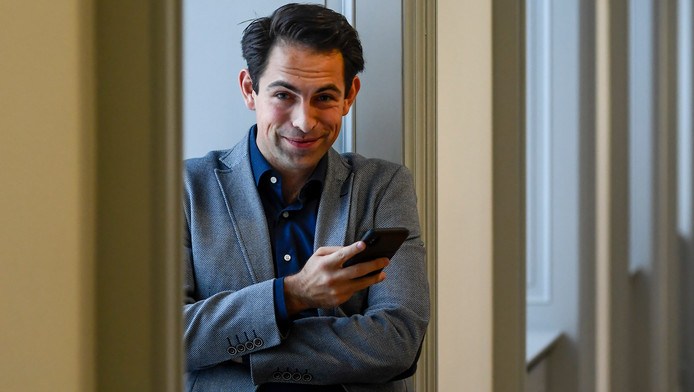Tom Van Grieken, chairman of Flemish far-right Vlaams Belang has announced that he will not download the Belgian corona tracing app 'Coronalert' due to his lack of confidence in the Belgian state.
"I have no confidence in the Belgian state. The government doesn't need to know where I am, I find that a bit frightening," Van Grieken said during a debate on Tuesday night, Het Nieuwsblad reports.
The tracing app, however, only exchanges random codes with the apps of other people who have been close to you, via Bluetooth and does not keep location data.
Privacy continued to be a main concern of Van Grieken's comments, saying that "the state must trust its citizens and not distrust them," adding that "it is a difficult balance between public health and privacy."
Needs To Be Downloaded
These comments strike out against the core requirements of the app, which relies on mass downloads to ensure accurate tracking.
“By using the app, we can protect each other, slow down the spread of Covid-19 and help contact tracing,” said Karine Moykens, chair of the interfederal committee for Testing & Tracing, when presenting the app during a press conference on Wednesday.
“However, the app will only be effective if enough people install and use it,” she said, calling on everyone to download the app to their smartphone and to turn it on.
The most important benefit of the app is that it can also notify the people you have been in contact with but do not remember, or those you do not know, and therefore cannot pass on to the contact tracers, according to Moykens.
Decide For Themselves
Despite his comments, Van Grieken did not call for others not to wear the mask, instead saying it was a matter of if users trust - or distrust "with good reason" - the government.
"Everyone has to decide for themselves. That too is freedom. Whoever feels good about it: no problem, install the app. Those who distrust the government - and with good reason - don't install it. It's better to have a little too much suspicion than a little too little, because once they have your data, you don't know where and when.
According to Moykens, privacy is at the forefront of how the app notifies people, explaining that the app “does not know who you are, or the identity of the people you come into contact with.”
These codes are then stored locally on your smartphone, and automatically deleted after 14 days. “No further data will be exchanged,” Moykens said.
The other app users will not know who informed them (in other words: who is infected), nor do they know where the infection took place. “Only the date of contact is communicated, which is obviously important to know the period of possible infection, and thus not to let the quarantine last longer than the 7 days since the contact took place,” she said.
Belgium's coronavirus app is available on the majority of mobile devices. For more information, and to get the app, click here.
Jules Johnston
The Brussels Times

